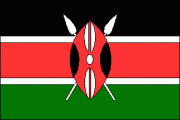The United Nations is an international organization founded in 1945 after the Second World War by 51 countries committed to maintaining international peace and security, developing friendly relations among nations and promoting social progress, better living standards and human rights.
Due to its unique international character, and the powers vested in its founding Charter, the Organization can take action on a wide range of issues, and provides a forum for its 193 Member States to express their views, through the General Assembly, the Security Council, the Economic and Social Council and other bodies and committees.
The work of the United Nations reaches every corner of the globe. Although best known for peacekeeping, peace-building, conflict prevention and humanitarian assistance, there are many other ways the United Nations and its System (specialized agencies, funds and programmes) affect our lives and make the world a better place. The Organization works on a broad range of fundamental issues, from sustainable development, environment and refugees protection, disaster relief, counter terrorism, disarmament and non-proliferation, to promoting democracy, human rights, gender equality and the advancement of women, minorities, children and youth, governance, economic and social development and international health, clearing landmines, expanding food production, and much more, and, recently added in the ever growing body of treaties – the Arms Trade Treaty, in order to achieve its goals and coordinate efforts for a safer world for this and future generations.
Main Bodies
The UN has six main bodies namely:-
- General Assembly The General Assembly is the main deliberative organ of the UN and is composed of representatives of all Member States. The work of the United Nations year-round derives largely from the mandates given by the General Assembly.
- Security Council The Security Council has primary responsibility, under the UN Charter, for the maintenance of international peace and security. A reform of the Security Council, including its permanent membership is under consideration.
- Economic and Social Council The Economic and Social Council (ECOSOC), established by the UN Charter, is the principal organ to coordinate the economic, social and related work of the United Nations and the specialized agencies and institutions.
- Trusteeship Council The Trusteeship Council was established in 1945 by the UN Charter to provide international supervision for 11 Trust Territories placed under the administration of 7 Member States, and ensure that adequate steps were taken to prepare the Territories for self-government and independence. By 1994, all Trust Territories had attained self-government or independence.
- International Court of Justice The International Court of Justice, located at The Hague in the Netherlands, is the principal judicial organ of the United Nations. It settles legal disputes between states and gives advisory opinions to the UN and its specialized agencies.
- Secretariat The Secretariat carries out the day-to-day work of the Organization. It services the other principal organs and carries out tasks as varied as the issues dealt with by the UN: administering peacekeeping operations, surveying economic and social trends, preparing studies on human rights, among others.
Main Committees
With the close of the general debate, the Assembly begins consideration of the substantive items on its agenda. Because of the great number of questions it is called upon to consider, the Assembly allocates items relevant to its work among its six Main Committees, which discuss them, seeking where possible to harmonize the various approaches of States, and then present to a plenary meeting of the Assembly draft resolutions and decisions for consideration.
The six main committees are:
- First Committee (Disarmament and International Security Committee) is concerned with disarmament and related international security questions;
- Second Committee (Economic and Financial Committee) is concerned with economic questions;
- Third Committee (Social, Humanitarian and Cultural Committee) deals with social and humanitarian issues;
- Fourth Committee (Special Political and Decolonization Committee) deals with a variety of political subjects not dealt with by the First Committee, as well as with the issue of decolonization;
- Fifth Committee (Administrative and Budgetary Committee) deals with the administration and budget of the United Nations; and
- Sixth Committee (Legal Committee) deals with international legal matters.


